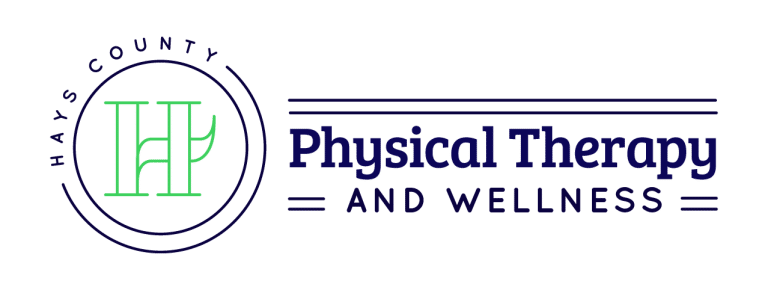Have you wondered, what the heck is going on with my body? Have you or someone you know been through or maybe you’re currently going through the menopause transition and feel lost?
Have you been told that you’re “too young” to be going through menopause? Have you felt like there is no hope as you age and the symptoms of menopause are just some miserable process we get to deal with as women?
Well…while this time in a woman’s life is definitely full of transitions, it doesn’t have to be miserable. You can thrive through perimenopause and beyond.
What Is Menopause?
First of all, what is the menopause transition, perimenopause? It is the transition women go through that signifies the gradual decline in hormones.
Estrogen and progesterone are the most notable hormones that decline. Surprisingly, perimenopause can begin in early 40’s and sometimes in the late 30’s for some women or as late as mid-50’s which means that as we approach late 30’s/early 40’s we should prepare our mind and body for this transition.
Menopause is the last menstrual cycle women have in their lifetime and research has shown that women will start to show some signs and symptoms of the menopause transition as soon as 10 years before their last menstrual cycle. Understanding the transitions and what to expect is one of the best ways to prevent the huge shifts and swings that happen for many.
Hormones During Menopause
As women make the transition into menopause, increased levels of circulating follicle stimulating hormone (FSH), fluctuating levels of estrogen, declining levels of progesterone, and significant declines in testosterone can contribute to mood swings, hot flashes, loss of bone and muscle mass, decreased libido, and difficulty maintain and managing body composition. Sounds rough, right?! However, this phase in women’s lives can be one of thriving. Finding the best combination of support for each individual is crucial to thriving through menopause.
One of the most common ways to address the hormonal shifts is by using supplemental hormones. This means talking to your health care providers about possible supplementation with hormones. There are options of bioidentical hormones and synthetic hormones and working with your healthcare team to find the best options for you can help minimize some of the hormonal swings that can happen in menopause that lead to the hot flashes, pain, bladder issues, and a host of other frustrations that have come.
In addition to discussing hormonal therapies and other medical interventions with your provider, movement, nutrition, and supplementation may be the key to navigating this transition.
Exercise To Build Strength During Menopause
With the decline in testosterone and estrogen during this phase of life, muscle mass and strength may also decline, this includes the pelvic floor musculature which leads to an increase in symptoms of urinary incontinence (loss of urine unexpectedly) for many women. Yet another fun side effect of the menopause transition. Good news, weight training and strength training can help manage urinary symptoms
Movement is crucial for long term health. And, no, Kegels are not the only answer to improving pelvic floor issues in perimenopause. Kegels are only one component of strengthening pelvic floor musculature. The hips and core musculature are crucial in helping women stay strong, healthy, and active through this new stage of life.
By participating in weight training, women start to rebuild muscle mass and manage bone density loss that can occur with the hormonal shifts of this stage of life.
As we age, our bone health starts to decline and weight bearing exercises are crucial to maintain bone density and avoid broken bones.
Things like strength training and weight lifting (no, you won’t get bulky), dancing, yoga, Pilates, and other land based exercise classes and training are important for long term bone health and density. Regular strength training is helpful in maintaining core and pelvic floor muscle strength, improving overall fitness, improving balance and coordination which reduces risk for falls and injury.
Added bonus, exercise helps with improving mood, hormone balance, and body composition in addition to managing stress which has a huge effect on our hormonal health.
Stress Reduction And Supplementation
During perimenopause, your hormones are already in a new stage so reducing the effects of stress can help manage the huge swings that many women experience during the menopause transition.
One of the key ways to reduce stress is through adequate sleep, nutrition, and supplementation. Balanced nutrition helps to manage the effects of stress and hormonal changes in the body. By fueling your body effectively for your activity levels and supporting your body systems from the inside out, you help reduce the hormonal shifts that happen during this phase of life.
Quality supplements such as magnesium, Omegas, vitamin D, among other supplements could be helpful in maintaining bone health and balancing hormone health.
Magnesium can help with sleep, stress reduction and bowel regularity to decrease risk of constipation.
Why is that important? Constipation can increase the incidence of urinary incontinence because of the additional pressure placed on the bladder due to incompletely emptied bowels.
I’m sure you’ve heard of Omega-3 fatty acid and the benefits; supplementing with Omegas can be helpful in managing hot flashes and hearth health. Consider this as an additional supplement if you aren’t already taking an Omega.
Most of us do not get enough vitamin D, so supplementing with Vitamin D can help maintain bone density and decrease bone loss as estrogen levels decline.
As with any supplement, ensure that they are the right ones for you, do not interact with any of your current supplements of medication and be sure find good quality supplements.
Perimenopause should be a phase of life that we enjoy and get to live our lives even more joyfully. Not a time to be frustrated and feel miserable.
Find the right combination of movement, nutrition, supplements, and hormone support for you to help you feel strong, confident, young, and vibrant as you approach life’s transition.
Want to learn more about menopause, reach out Dr. Nicole Laird, expert in women’s health physical therapy and owner of Hays County Physical Therapy and Wellness in San Marcos, TX by sending an email with the subject: Menopause to info@hayscountypt.com or give call use at 512-268-9130.
Other Free Resources For Health And Wellness
Read the Full Article on San Marcos Daily Record – Pelvic Floor Rehabilitation: Helping Women Live A Fuller Life
Read Our Latest Blog – Early Detection Matters: Pelvic Organ Prolapse Symptoms

